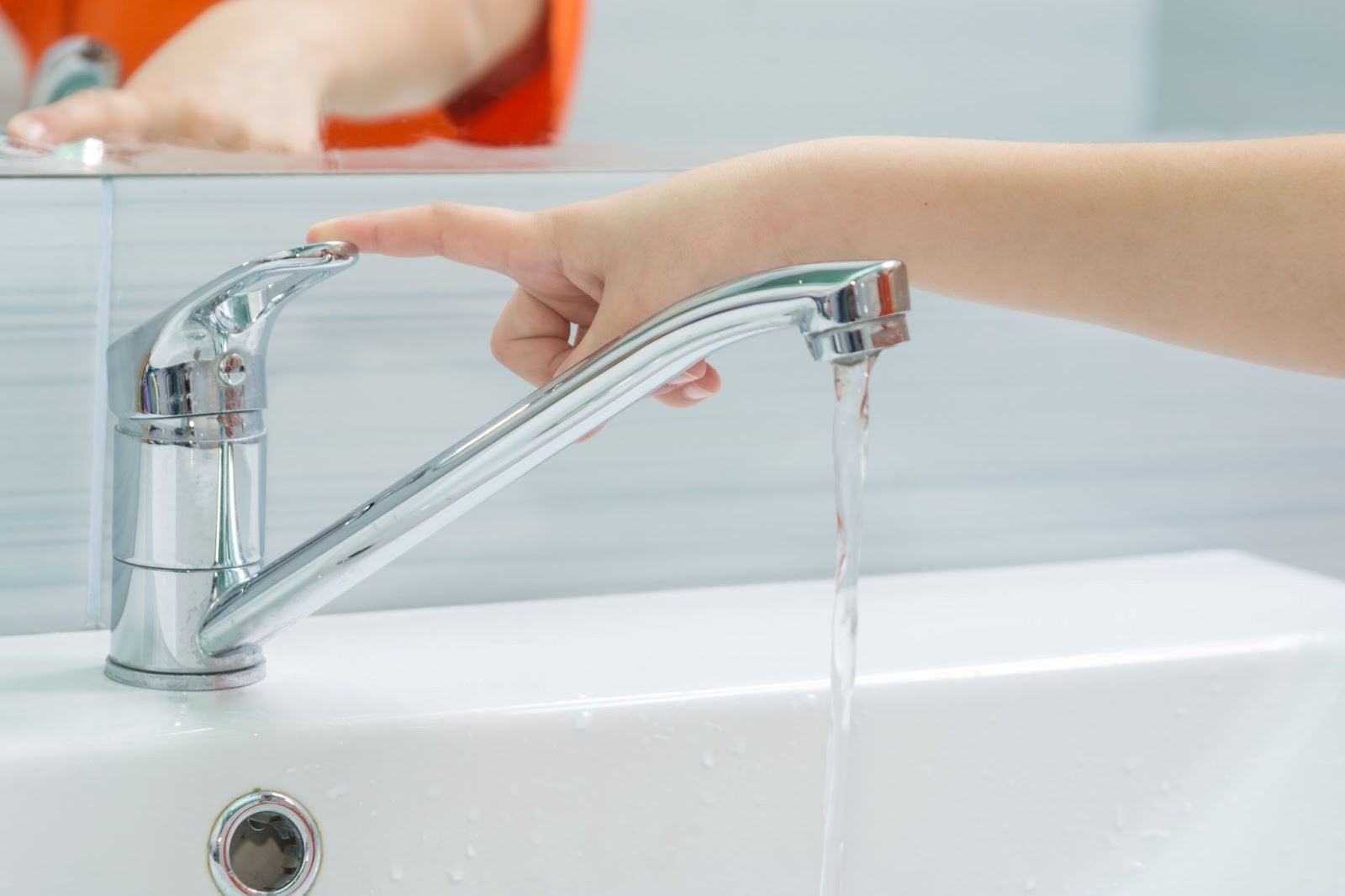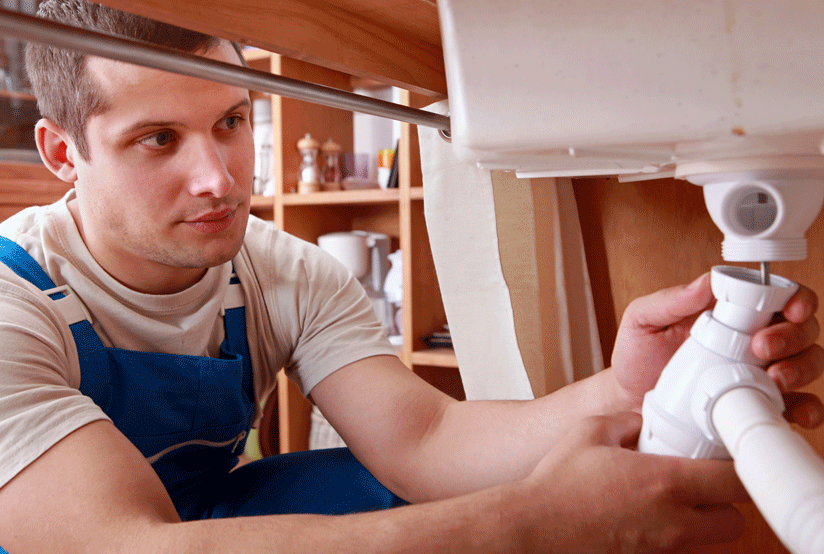They are making a few great pointers related to Solved! How to Fix a Slow Sink Drain in general in this article underneath.

Intro
We've all existed: You're brushing your teeth or cleaning your hands, and you notice the water pooling in the sink. As opposed to quickly swirling away, it lingers, transforming your once-refreshing early morning routine into a small overload scene. A slow-draining sink isn't just frustrating; it's usually an indication of bigger pipes problems lurking beneath the surface area. Fortunately is that most slow-draining sinks can be taken care of with a little know-how, a couple of standard tools, and some perseverance. Ready to tackle this task head-on? Let's roll up our sleeves and dive right in.
Recognizing the Root Causes Of a Slow-Draining Sink
Prior to you begin poking around in your pipelines, it helps to recognize what might be triggering the stagnation. Comprehending the origin makes it less complicated to select the right repair.
Tools and Products You'll Require
The right devices make all the difference. Luckily, you won't require a completely stocked plumber's van to do the job.
Step-by-Step Guide to Dealing With a Slow-Draining Sink
Now, allow's enter into the nitty-gritty. This detailed process will certainly guide you with simple methods to recover your sink's drainage.
Step 1: Get Rid Of and Tidy the Stopper
Typically, the stopper (that tiny plug you lower to block water) is the first culprit. Remove it meticulously and wipe any hair or gunk entraped around its base. Wash it completely prior to placing it back in position.
Action 2: Make Use Of a Plunger to Dislodge Debris
Got that plunger ready? Setting it over the drain and give it a few company pumps. The idea is to create suction that can loosen any clog. If you see littles debris drifting up, you're on the appropriate track.
Action 3: Try a Drain Snake or Cable Wall Mount
If the bettor does not suffice, it's time to highlight the drainpipe snake. Delicately feed it right into the drain and spin as you go. You might really feel some resistance-- that's likely the obstruction. Maintain twisting and drawing until you eliminate the obstruction. If you don't have a drain serpent, an aligned cord hanger can operate in a pinch.
Tip 4: Apply a DIY Drain Cleaner
A natural cleaner made from baking soda and vinegar can break down residual grime. Pour half a cup of baking soda right into the drainpipe, followed by half a cup of vinegar. Let it fizz for about 15 mins, then flush with warm water. This chemical reaction usually does marvels for small blockages.
Tip 5: Rebuild and Examine the Sink
Put everything back with each other and run the faucet. Does the water currently swirl down the tubes at a decent speed? If yes, provide on your own a pat on the back. Otherwise, don't despair-- there are still a few even more tricks up your sleeve.
Vital Devices for Do It Yourself Services
A bettor is your go-to beginning factor. A small, sink-sized bettor produces suction that can dislodge small clogs. For even more consistent clogs, a drainpipe serpent (often called a plumbing's auger) functions wonders. A set of handwear covers, a flashlight, and possibly a pair of safety goggles are likewise convenient.
Recommended Cleaning Solutions
Moderate dish soap and warm water can aid break down oily accumulation. A mixture of cooking soda and vinegar is a reliable natural remedy, and enzymatic cleaners use a more green technique. Keep chemical drainpipe cleansers as a last hope, as they can be rough on your pipelines.
Usual Culprits Behind Slow Drainage
So, what's clogging points up? Typically, it's a mixture of day-to-day particles-- believe hair, soap scum, toothpaste deposit, and leftover food particles. Over time, these little bits collect and cling to the pipe wall surfaces, slowly narrowing the flow and making it harder for water to travel through. Sometimes, mineral deposits from hard water can additionally contribute to the crud, producing the perfect tornado for persistent blockages.
When is it Time to Do Something About It?
If you see the water draining pipes slower than usual, it's a good idea to intervene sooner instead of later. Waiting too long might result in complete clogs, undesirable smells, or even pipe damage. If the water takes greater than a couple of seconds to clear out after switching off the tap, consider it a warning and prepare yourself to put on your do it yourself hat.
Safety And Security First: Precautions and Preparations
Before you launch into unclogging setting, think of safety. You're taking care of possibly filthy water and debris, so slip on a pair of gloves. If you're making use of chemical cleaners, make certain the space is well-ventilated and follow the guidelines on the label.
Safety Equipment and Work Area Setup
Lay down some old towels or dustcloths around the sink location to catch splashes. Eliminate any products that may get in your means, like soap dispensers or tooth brush owners. Make sure you have great lights-- get a flashlight if needed.
Alternate Methods for Stubborn Clogs
Not all obstructions are produced equivalent. If your sink still declines to work together, take into consideration these alternative options.
Sodium Bicarbonate and Vinegar Method
We already discussed this, yet it deserves keeping in mind once more. This mild, environmentally friendly technique is much safer than chemical cleansers and usually fairly efficient.
Chemical Drain Cleaners
Enzyme-based cleaners use natural germs to absorb organic matter. They're an outstanding choice if you're wanting to avoid extreme chemicals. Simply keep in mind, they may take a bit longer to work their magic.
Chemical Drain Cleansers: Advantages And Disadvantages
Chemical cleaners can blast with hard blockages fast, however they're not without downsides. They can produce warmth and fumes, damages pipes if used exceedingly, and posture ecological threats. Use them sparingly, and constantly follow the instructions meticulously.
Safety Nets to Keep Your Sink Flowing
Prevention is the most effective cure. By embracing a couple of basic practices, you can maintain your sink from reducing in the first place.
Normal Cleansing Habits
Wipe down the sink container and component location consistently. Eliminate hair or food fragments before they have an opportunity to wash down the drainpipe.
Preventing Harmful Compounds Away
Think twice before unloading coffee premises, grease, or coarse vegetable scraps down the sink. These culprits hold on to pipe walls, developing obstructions in time.
Regular Upkeep Checks
Arrange a fast month-to-month evaluation. Run hot water through the sink for a couple of minutes, taking note of the circulation. If it seems slow, act fast prior to it becomes a full-on obstruction.
When to Call an Expert Plumber
In some cases, despite how difficult you attempt, that clog just won't budge. That's when it's time to generate the pros.
Indications That Show a More Serious Problem
If your sink drains pipes gradually despite multiple attempts, or if you observe water backing up in various other fixtures (like your shower or commode), you might have a more significant plumbing concern hiding much deeper in the system.
Balancing Do It Yourself Efforts with Specialist Assistance
While do it yourself can save you money and supply a sense of success, there's no shame in calling a professional. A specialist plumbing can examine your entire plumbing setup, ensuring there's no underlying damage or lasting trouble that could cost you much more in the future.
Contrasting Expenses and Long-Term Solutions
Before choosing, consider the big picture. A cheap, quick fix could solve the issue temporarily, but purchasing an extra long-term option could save you cash and stress in the long run.
Evaluating the Expenditures of Do It Yourself vs. Professional Fixes
DIY fixes typically set you back bit greater than the rate of a bettor or a container of cooking soda. Professional services, on the other hand, come with a price but might avoid repeated concerns and expensive repair work later on.
Investing in Top Quality Fixtures and Upgrades
If your sink's style adds to frequent clogs, it may be worth upgrading to higher-quality fixtures or modifying the plumbing design. Consider this a financial investment in your house's functionality and comfort.
Conclusion
A slow-draining sink can seem like a small irritability, yet it's usually an indicator that your plumbing requires a little TLC. By understanding the origin, utilizing the right devices and methods, and committing to basic safety nets, you can keep your sink streaming openly. And when all else fails, never think twice to call in an expert-- your home's pipes is worth the financial investment in treatment and upkeep.
Three Common Ways to Fix a Slow Drain
Baking Soda Method
Boil a full pot of water. Measure out cup of baking soda and pour it down the drain. Then take cup of the magical cleansing substance known as white vinegar and drop that down there too. Allow the mixture to fizz in the drain for five minutes as the vinegar and baking soda combine. Now dump in that whole pot of boiling water. This combination of cleaning substances should clear out anything that is causing your sink to drain slowly. If it doesn t...
Zip-It
If the baking soda method doesn t clear out your drain, it may be because a significant amount of hair and/or other debris has collected there and you need to remove it. Purchase a Zip-It tool at any home improvement or hardware store and insert it into your drain. It will catch any collected hair or debris that s blocking the flow of water. Pull it out. If it s got a big clump of hair, etc. on the end, you ve probably got your culprit.
Drain Cleaner
If these methods don t work, there is the standard drain cleaner that you can also buy in a hardware store or even your local grocery store. It s better if you can use a household solution, but these drain cleaners often work in a pinch. They re very simple to use. You generally just dump them in your drain and wait. If even this method is not effective, it may be time to call the plumber.
https://www.mrrooter.com/oneida/about-us/blog/2017/july/three-common-ways-to-fix-a-slow-drain/

I found that blog entry on 7 Ways To Fix A Slow-Draining Sink Before You Call A Plumber while exploring the internet. Feel free to set aside a second to share this blog post if you appreciated it. Thanks a lot for your time spent reading it.
Click Here